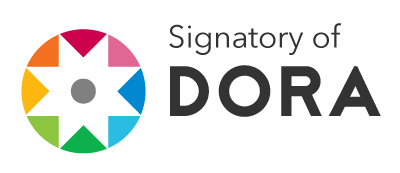Accomplishment of ethical conditions related to the use of placebos in colombian clinical trials
Abstract
Use of placebos in clinical trials represents an important need in the measurement of the variability of the course of certain diseases and the possibility of spontaneous cure, but despite the existence of regulatory issues regarding use has been many studies use them indiscriminately threatening to those who receive. Use of placebos in clinical trials represents an important need in the measurement of the variability of the course of certain diseases and the possibility of spontaneous cure, but despite the existence of regulatory issues regarding use has been many studies use them indiscriminately and this represent a threatening to those who receive. The objective is review some concepts about placebo and determine compliance of the ethical issues about use of placebo in clinical trials conducted in Colombia by analyzing of the registry in the database of the Food Drug Administration. We found on December 2013 a total of 713 clinical trials registered in Colombia, of which 242 used placebos and 49 of them did not meet the ethical conditions on the use of placebo. This situation leads to think that the information available local and globally for the use of placebo may be insufficient and incomplete and lead to misinterpretation, which could allow the wrong approving of these studies by ethics committees. We don’t have an information system on clinical trials and we cannot determine what the consequences caused this situation in the affected population.
Downloads
Disciplines:
Bioethics, Social Sciences, Medical Sciences, EnvironmentalLanguages:
esReferences
•Benedetti, F. (2009). Placebo effects: undersatanding the mechanisms in health disease. The New England Journal of Medicine, 360, 1576-1577.
•Carné Cladellas, X. (2006). Uso de placebos en ensayos clínicos. Humanidades Médicas, 7, 11-18.
•Carpenter, W. T.; Appelbaum, P. S. y Levine, R. J. (2003). The Declaration of Helsinki and clinical trials: a focus on placebo-controlled trials in schizophrenia [en línea]. The American Journal of Psychiatry, 160(2), 356-62.
•Carreño Dueñas, A. (2013). Situación de los estudios clínicos en Colombia. Revista Medicina, 35(2), 123-129.
•Chow, S.-C. (2004). Design and Analysis of Clinical Trials, Concepts and Methodologies. (2th Ed.). New Jersey: John Wiley & Sons, Inc. Diccionario de la Lengua Española (n.d.). Real Academia Española. Recuperado de http://www.rae.es/
•Franco, A. (2003). Dilemas éticos sobre el uso de placebo en investigación terapéutica. Revista Colombiana de Psiquiatría, XXXII(1), 93-107.
•Kamper, S. J. y Williams, C. M. (2013). The placebo effect: powerful, powerless or redundant? British Journal of Sports Medicine, 47(1), 6-9. doi:10.1136/bjsports-2012-091472.
•Kong, H. y West, S. (2001). Ethical principles for medical research involving human subjects [en línea]. European Journal of Emergency Medicine: Official Journal of the European Society for Emergency Medicine, 8(3), 221-3.
•Lau, J. T. F.; Mao, J. y Woo, J. (2003). Ethical issues related to the use of. Hong Kong Med J, 9(3), 192-8.
•National Commission for the Protection of Human of Biomedical and Behavioral Research. (1979). The Belmont Report (pp. 1-5). Recuperado de http://www.hhs.gov/ohrp/humansubjects/guidance/belmont.html
•Organizaciones Internacionales de las Ciencias Médicas (CIOMS). (2002). Pautas éticas internacionales para la investigación biomédica en seres humanos (pp. 1-119). Recuperado de http://www.cioms.ch/index.php/publications/printable-publications?task=view&id=48&catid=57
•República de Colombia, Ministerio de Salud (1993). “Resolución 8430 de 1993”. Bogotá, Colombia.
•Science Medicines Health. (n.d.). European Medicines Agency. Recuperado de http://www.ema.europa.eu/ema/
•Simón, P. (2000). El consentimiento informado. Historia, teoría y práctica. Madrid: Tricastela.
•The European Agency for the Evaluation of Medicinal Products (2001). EMEA/CPMP position statement on the use of placebo in clinical trials with regard to the revised Declaration of Helsinski (pp. 1–2). Recuperado de http://www.ema.europa.eu/docs/en_GB/document_library/Position_statement/2009/12/WC500017646.pdf ICH Guidelines (s.f.). The International Conference on Harmonisation. Recuperado de http://www.ich.org/products/guidelines.html
•The U.S. Department of Health and Human Services (n.d.). U.S. Food and Drug Administration Protecting and Promoting Your Health. Recuperado de http://www.fda.gov/
•Walach, H. (2003). Placebo and placebo effects. A concise review. Focus on Alternative and complementaryTherapies, 8(2), 178-187.
•World Health Organization (1995). Guidelines for good clinical practice (GCP) for trials on pharmaceutical products. Recuperado de http://apps.who.int/prequal/info_general/documents/GCP/gcp1.pdf
•World Medical Association (n.d.). WMA Declaration of Helsinki – Ethical Principles for Medical Research Involving Human Subjects. Recuperado de http://www.wma.net/en/30publications/10policies/b3/index.html
•World Medical Association (2013). Declaration of Helsinki-Ethical Principles for Medical Research Involving Human Subjects. Recuperado de http://www.wma.net/es/30publications/10policies/b3/17c.pdf












